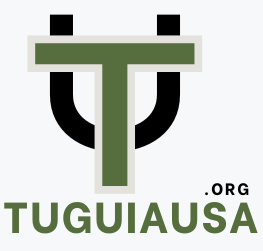Knowledge management has become a cornerstone of success in today’s fast-paced business environment. As organizations strive to maintain a competitive edge, effectively managing and leveraging collective knowledge is paramount. Strategic knowledge management processes can enhance decision-making, innovation, and operational efficiencies. Below, we delve into the intricacies of knowledge management and its impact on modern organizations.
Understanding Knowledge Management and Its Evolution in Business

Knowledge management encompasses the systematic management of an organization’s knowledge assets. It involves identifying, capturing, distributing, and effectively using information and expertise within a company. The roots of knowledge management can be traced back to the early emphasis on data processing and the subsequent evolution of information technology systems, which underscored the potential of structured information sharing.
As businesses grew more complex, the need for an organized approach to handling the deluge of data became apparent. Knowledge management evolved to handle not only explicit knowledge, such as documented information but also tacit knowledge, which is harder to express and found in employee experience and know-how. Integrating knowledge management strategies has pushed organizations to foster a culture where information flows freely and innovation flourishes.
Modern knowledge management strategies now incorporate a blend of technology and human-centric approaches. Advances in artificial intelligence and machine learning have added layers of sophistication to knowledge management systems, enabling organizations to predict trends and make informed decisions swiftly. Moreover, increased collaboration across departments has become fundamental to effective knowledge management.
To grasp the nuances of current knowledge management practices, one can examine a knowledge management plan example, which showcases how the correct alignment of goals, tools, and cultures can harmonize the dissemination of knowledge. An effective plan serves as a roadmap for organizations to navigate the complexities of information handling and integration into everyday operations.
The Strategic Value of Knowledge Management in Organizational Growth

Knowledge management plays a crucial role in driving organizational growth. It empowers employees by making relevant knowledge accessible, boosting productivity and creativity. This strategic asset can lead to organizational agility, as teams can adapt to changes and address challenges more effectively with the proper knowledge.
Furthermore, strong knowledge management practices can significantly improve customer satisfaction. By harnessing organizational knowledge, customer service representatives are better equipped to resolve issues and provide relevant information, elevating the customer experience. This direct impact on customer interactions underscores the strategic value of knowledge management in maintaining customer loyalty and competitive advantage.
Knowledge management can offer scalability benefits in terms of scaling operations. As organizations expand, well-documented processes and shared expertise make it easier to onboard new employees and ensure consistency in service delivery. This kind of knowledge sharing also fosters innovation, encouraging diverse perspectives and collaborative problem-solving across the organization.
A strategic emphasis on knowledge management aligns organizational knowledge with business objectives. When managed effectively, knowledge becomes a driver for identifying new market opportunities, refining strategies, and achieving long-term business goals. Companies that ignore this strategic advantage may lag in an increasingly knowledge-driven economy.
Techniques and Tools for Effective Knowledge Management
Effective knowledge management requires a balanced mix of techniques and tools tailored to an organization’s needs. Techniques like knowledge mapping and communities of practice empower organizations to visualize knowledge networks and stimulate idea-sharing among employees with common interests or expertise, thereby enhancing collective intelligence.
On the tools side, comprehensive content management systems (CMS) and knowledge bases offer centralized document storage and retrieval platforms, making it easier to maintain and access corporate knowledge. These digital repositories are designed to provide quick and systematic access to company policies, procedures, and expertise, removing barriers to information within the organization.
Collaboration tools like intranets, social networks, and project management applications contribute significantly to knowledge management. They facilitate communication and idea exchange among team members, regardless of physical location. The proliferation of these tools has made knowledge sharing an everyday part of work life, fostering a more collaborative and innovative organizational culture.
Organizations must stay abreast of emerging knowledge management technologies. Advancements such as AI-driven knowledge discovery systems can automatically identify patterns and insights from large datasets, providing a competitive edge through enhanced predictive capabilities and decision support.
Altogether, knowledge management is a vital pillar for organizational success, as it fosters innovation, improves operational efficiencies, and drives strategic growth. By embracing practical tools, techniques, and a culture of collaboration, organizations can harness their collective knowledge to remain agile and competitive in today’s knowledge-driven economy.
May also Read: tuguiausa






